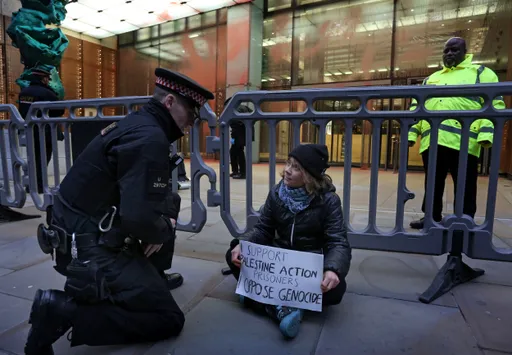In a historic ruling, a UN-backed court in the Central African Republic convicted three militiamen of crimes against humanity and handed them jail terms ranging from 20 years to life.
The three convicted on Monday — Issa Sallet Adoum, Ousman Yaouba and Tahir Mahamat — were accused of taking part in an attack by the 3R armed group in May 2019 in which 46 villagers in northwest CAR were massacred.
After its first-ever trial, the Special Criminal Court, a tribunal of local and international judges, sentenced Adoum to life and the others to 20 years.
One of the poorest and most volatile countries in the world, CAR plunged into civil war in 2013 largely along sectarian lines.
Violence fell back in intensity in 2018 but as recently as early 2021, two-thirds of the country lay in the hands of armed groups spawned by the conflict.
The 3R (Return, Reclamation and Rehabilitation) is one of the most powerful of these militias, drawing its members mainly from the Fulani ethnic group, also called Peuls.
The special court's mandate applies to war crimes and crimes against humanity dating back to 2003.
The tribunal was set up in 2015 with UN backing but struggled for years to get going in the face of logistical hurdles, lack of money and local hostility.
After a faltering start caused by a lack of defence lawyers, its first trial opened on April 25 to a panel of national and international judges, with prosecutors from the CAR, the Democratic Republic of Congo, France and Togo.
READ MORE: UN denounces human rights abuses by national and foreign forces in CAR
Murder and rape
Prosecutors had requested life terms for the three, accused of slaughtering civilians in the villages of Koundjili and Lemouna on May 21, 2019.
In a statement, the court said the trio were guilty of murder, inhumane acts and humiliating and degrading treatment.
Adoum, as "military chief", was additionally convicted of rapes committed by subordinates and of war crimes.
The three were acquitted on charges of torture committed as a crime of war.
Defence attorney Manguereka Andre Olivier said the defendants would file an appeal against the ruling. They have three days in which to submit their petition.
Mahamat, who protested his innocence, went on hunger strike three weeks earlier. He was brought in for sentencing on a stretcher, an AFP news agency journalist saw.
The two other defendants, appearing behind a thick glass screen wearing orange prisoner clothing and with their backs turned to a packed courtroom, betrayed little emotion as the sentence was pronounced.
Victims of the 2019 atrocity hailed the court's ruling, after years of despair about the prospects for justice in a country sapped by weak governance, poverty and other ills.
"We are very happy with the verdict — it's a message to the murderers: sooner or later, justice will catch up with them," said Fernand Made-Djapou, a lawyer who acts as spokesperson for an alliance of civilian plaintiffs.
"I was there at the attack on Koundjili, where my elder brother... was killed, along with 13 other people I knew," a 34-year-old man told AFP, speaking on condition of anonymity.
"I am pleased with the ruling and also that the court mentioned the rape, which affected six of my sisters."
READ MORE: HRW: Russian fighters killing civilians in Central African Republic
'Triumph of justice'
Justice Minister Arnaud Djoubaye Abazene, speaking outside the court, said the ruling was a "triumph of justice" and "a strong signal... against impunity".
"The verdict is a milestone for the victims and communities that have been terrorised during the country's conflicts," said Elise Keppler, associate international justice director of Human Rights Watch (HRW).
Two other major cases are also pending, in the CAR and in The Hague.
On September 30, the court announced that it had charged an army commander, Vianney Semndiro, with crimes against humanity, torture, rape, sexual slavery and "forced disappearance of persons".
The alleged atrocities were committed at the Bossembele military camp north of the capital, Bangui, between 2009 and 2013, during the regime of former president Francois Bozize.
Part of the secretive camp had been transformed into jails for "political" prisoners, according to international NGOs and journalists who visited the camp in 2013 after the fall of Bozize.
In a separate case, the International Criminal Court (ICC) in The Hague last month began the trial of Mahamat Said Abdel Kani, an alleged commander of the mainly Muslim Seleka armed group that ousted Bozize.
He faces seven charges of war crimes and crimes against humanity relating to atrocities at a police compound where suspected Bozize supporters were beaten and tortured.
READ MORE: Alleged militia leader before ICC at first Darfur trial
























